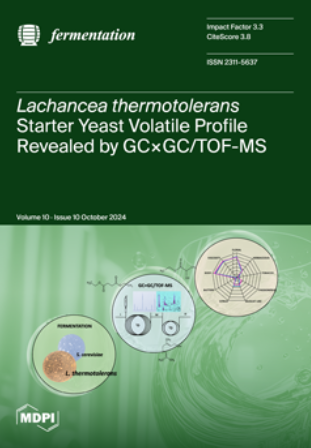生物炼油厂利用可生物降解残渣生产生物肥料和生物能源的过程可持续性分析
IF 3.3
3区 农林科学
Q2 BIOTECHNOLOGY & APPLIED MICROBIOLOGY
引用次数: 0
摘要
当土壤没有植物所需的营养平衡时,使用化肥对农业发展至关重要。化肥的不断使用改变了土壤的理化和生物特性。生物肥料生产被认为是减少化肥依赖和环境影响的一种替代方案。本研究的目的是从技术、经济、环境和社会层面评估生产生物肥料和生物能源的三种技术。通过厌氧消化获得硫酸铵和基于消化物的生物肥料;通过气化生产生物炭;并通过蛋白质水解获得作为植物生物刺激剂的氨基酸。计算了不同的指标来说明这些进程的可持续性。在不考虑农艺阶段或其他价值链环节的情况下,对每个生物炼制加工阶段(复杂和独立)进行技术、经济、环境和社会分析。情景1对经济、环境和社会方面产生了积极影响,因为与情景2和情景3相比,该过程的回收期为10年,碳足迹为0.67千克二氧化碳当量/千克产品,并且由于产品组合,在哥伦比亚有可能创造9个就业机会。总之,生物肥料和生物能源在生物精炼厂的整合有可能扩大生物产品的范围,提高工艺的可持续性。本文章由计算机程序翻译,如有差异,请以英文原文为准。
Process Sustainability Analysis of Biorefineries to Produce Biofertilizers and Bioenergy from Biodegradable Residues
The use of chemical fertilizers is essential for agricultural development when soils do not have the nutritional balance required for plants. The continuous use of chemical fertilizers has changed the soil physicochemical and biological properties. Biofertilizer production has been considered as an alternative to reduce chemical fertilizers dependence and the environmental impact. The aim of this study is the evaluation of three technologies for the production of biofertilizers and bioenergy at technical, economic, environmental, and social levels. Ammonium sulfate and digestate-based biofertilizers were obtained via anaerobic digestion; biochar was produced via gasification; and amino acids as plants biostimulants were obtained via protein hydrolysis. Different indicators were calculated for elucidating the sustainability of the processes. Technical, economic, environmental, and social analysis is performed for each of the biorefineries processing stage (complex and stand-alone) without considering the agronomic stage or other value chain links. Scenario 1 presented a positive impact on the economic, environmental, and social aspects since this process has a payback period of 10 years, a carbon footprint of 0.67 kg CO2-eq/kg product, and a potential to generate nine jobs in the Colombian context due to the products portfolio, in contrast with scenario 2 and 3. As conclusion, the integration of biofertilizers and bioenergy in biorefineries have the potential to expand the range of bioproducts and to increase the process sustainability.
求助全文
通过发布文献求助,成功后即可免费获取论文全文。
去求助
来源期刊

Fermentation-Basel
BIOTECHNOLOGY & APPLIED MICROBIOLOGY-
CiteScore
3.80
自引率
18.90%
发文量
594
审稿时长
7 weeks
期刊介绍:
Fermentation-Basel is an international open access journal published by MDPI, focusing on fermentation-related research, including new and emerging products, processes and technologies, such as biopharmaceuticals and biotech drugs. The journal enjoys a good reputation in the academic community and provides a high-impact forum for researchers in the field of bioengineering and applied microbiology.
 求助内容:
求助内容: 应助结果提醒方式:
应助结果提醒方式:


